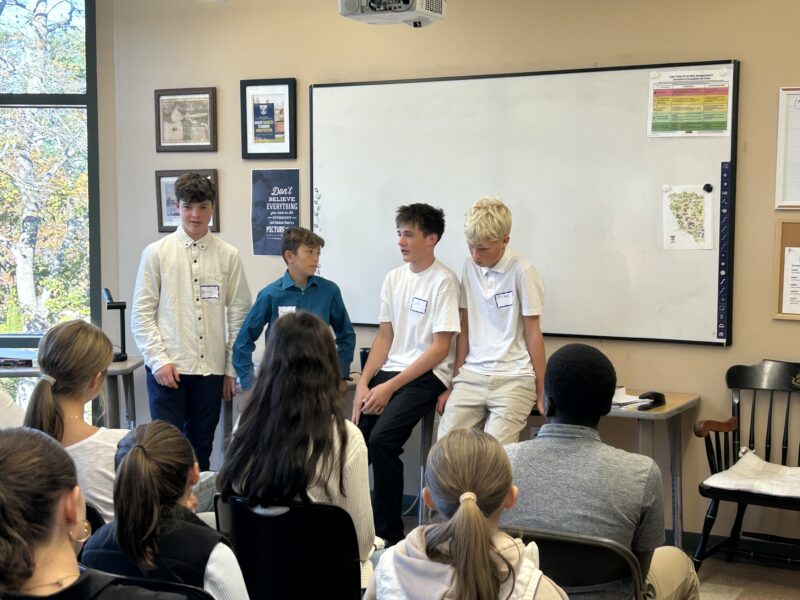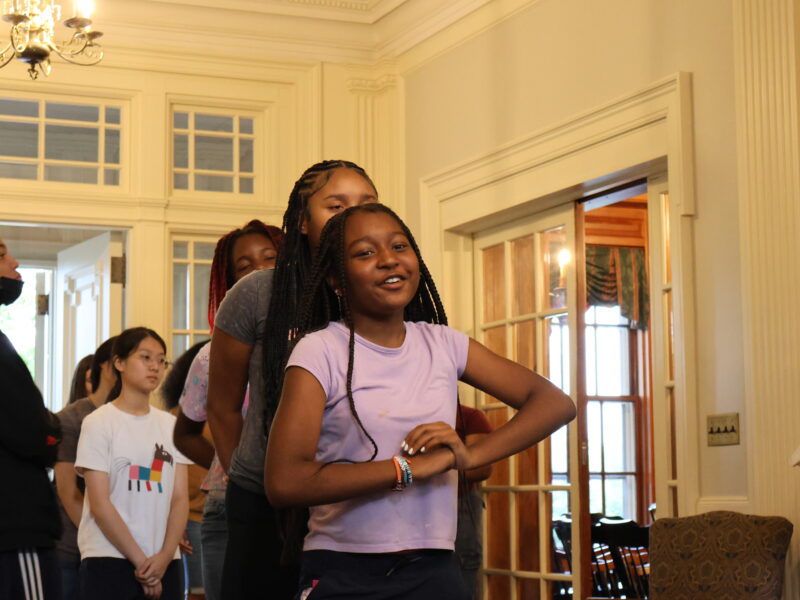In 3 Parts
By: Malcolm Gauld
November 21, 2022
“How do we get the kids excited about Discovery?”
That’s a question I have fielded from some of you in recent weeks. It’s a logical one. After all, the educators who have developed the program you find presented on the on-line LMS (learning management system) portal all come from schools that have been doing Discovery for decades. Not only are there very few adults on the scene at these schools who remember the pre-Discovery days, their students have never known anything else. So, that begs the question: How do you get it up and running in the first place? Let’s look at:1) a couple of common barriers, 2) an encouraging cultural development currently working in our favor, and 3) a couple of possible solutions.
Part 1: Two Barriers
One barrier is timeless: Way, way back before any of us were born, our society settled into a mindset that said, We’re going to award these things called high school diplomas. The recipients must show proof of proficiency in a single aspect of their development — academic — by earning the requisite number of Carnegie credits. We’ll leave the rest of their human development up to chance in the form of these things we’ll call extracurricular activities.
In the minds of our students (and the millions upon millions who have come before them), one of these things is a “have to” and all the others are “like tos.” (Translation: “You have to get the credits. We’d like you to do the other stuff.”) And as a popular saying at our school goes: “Never kid a kid.”
Another barrier has been with us since the GIs came home from WW2: The glorification of and the preoccupation with gaining admission to college, the more selective, the better. This preoccupation has led to emphasis on SAT preparation, rank-in-class, the aggressive pursuit of AP credits, a de-emphasis on the arts and “softer” sciences. (And lest we forget the recent Varsity Blues scandal!) I have spent my professional life in college preparatory schools and believe in their mission. At the same time, if I can quote from my forthcoming book: Culture by Design – The Discovery Process as a New Way for Schools:
“… it’s fingers on the proverbial chalkboard — Remember chalkboards? — whenever I hear college counselors, administrators, or even parents assuredly pronounce, “But we can’t teach X because the selective colleges want to see Y.” Not only do I long for the day when we stop allowing the colleges to dictate our curricular priorities, I firmly believe that a more holistic approach to middle and secondary education will ultimately produce better college students, not to mention more fulfilled adults.”
The Discovery Process is offered in the spirit of that more holistic approach.
Part 2: Our Time Has Come?
Rare is the day when you cannot read something in a newspaper or see something on-line or on TV that speaks to heightened anxieties among school children and within whole school communities. If you’re an educator, I’m guessing that you are familiar with the 2022 (this year!) CDC survey of 7,705 high school students that found that 44% of these students described persistent feelings of sadness or hopelessness that prevented them from participating in normal activities. What’s more, 9% of them admitted to having made an attempt at suicide. Suffice it to say that it’s time for a substantive change regarding our national priorities.
Part 3: Two Solutions
Let me begin with the most radical idea: Make participation with earnest effort in the Discovery Process a graduation requirement. The three Hyde Schools (FL, ME, and NYC) practicing the Discovery Process have long done this to positive effect. Can you measure someone’s character? I doubt it, but if you make it clear to students that “we’re going to sit down periodically to discuss the efforts you’re putting forth to try to apply the common language and the core principles of the program to your life”… they will take it more seriously. They will start doing things to show that they “get it.” They just do.
However, let’s say that this idea is simply not doable due to whatever dynamics may be at work in your school. And let’s say that you’re in a situation where the kids… and maybe some of the faculty… simply do not want to do it. Your strategy: Create an incentive. (The “Tom Sawyer Painting the Fence” story comes to mind!) Consider adding a “graduation with distinction” designation to your diploma. The Hyde Institute could create a certificate that states something to the effect of “This student has demonstrated an exemplary commitment to the principles and practices of the Discovery Process for the benefit of self, peers, and our school community.” But don’t stop with a certificate. If you are a high school, write an email to the admissions offices of the 30+- colleges to which your students most frequently apply. (If you are a vocational school, considering sending it to local businesses or trades people.) In the email, briefly explain the Discovery Process and the criteria for earning distinction. Then encourage these schools or businesses to look favorably upon applicants that have earned it.
Simply put, not only does this approach create an incentive to put forth earnest effort in the Discovery Process, it creates a cost for not doing so.
And again, all were talking about here is effort. Not everyone can graduate in the National Honor Society or be named a Top-10 graduate in the local newspaper, but anyone can earn this distinction. And if everyone does, in fact, earn it… all the better!
The original Discovery Process schools mentioned at the beginning of this email did not instantly experience an inspiring school culture on Day #1 of adopting the program. It takes time. As one of the heads of one of our schools said to me last week, “It’s a journey, not a race.” In my experience, it comes down to the commitment and true intentions of the school’s leadership. On the one hand, the students (and faculty) will not take it more seriously than you do. On the other, if you’re serious about it, they will ultimately follow suit. They just do.
Finally, would love to learn of your initial experiences — good and bad — in this initial period of instituting the Discovery Process at your school.
Onward, Malcolm Gauld


